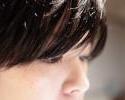Most people know that perinatal and postpartum depression are sudden onsets of depressive symptoms in women during or following childbirth.
Lesser known are the conditions of perinatal and postpartum OCD (obsessive-compulsive disorder), where women experience a sudden onset of obsessions and compulsions during or after pregnancy. Perinatal OCD occurs during pregnancy, and postpartum OCD occurs after childbirth. Together, they are often called POCD.
POCD and OCD
POCD is like OCD in that disturbing obsessive thoughts arise creating intense anxiety. To alleviate the anxiety compulsive or ritualistic behaviors are performed. Unlike OCD, symptoms of POCD tend to come on quite rapidly in conjunction with a growing sense of parental responsibility, and obsessions generally focus on the infant’s welfare.
Having some anxiety about a new arrival in the family is normal, and research reveals many parents have strange, unwanted thoughts concerning their baby. Getting caught up in these thoughts and feelings, and trying to fight or control them may be how some people get snared in OCD’s web of anxious intrusive worries, and anxiety relieving compulsive actions.
Signs of POCD
Beside an onset of symptoms that begin during or after delivery, signs of POCD include:
- Obsessing about harm coming to the unborn, or newborn infant, or fears of harming the baby—though the parent does not want to.
- Fearing the consequences of admitting there is a problem.
- Compulsive, repetitive behaviors, such as constant checking, praying, or washing that temporarily stop the troubling thoughts and anxious feelings.
- Avoiding activities such as bathing the baby, or diaper changing; or, needing a helper to always be nearby; or, not letting others care for the child.
- Feeling depressed, overwhelmed by the symptoms, and/or having trouble sleeping.
Though some new parents with POCD may fear harming their child, the chance of that happening is practically nonexistent. POCD is not the same as postpartum psychosis where individuals believe their hallucinations and misperceptions are true. With POCD, sufferers fear their obsessions and realize they are incompatible with their own values and sense of morality, so they fight the obsessions instead of acting on them.
Help Is Available
About one to two percent of pregnant and postpartum women develop POCD, and less often new fathers have symptoms. Though people already diagnosed with OCD may have more intense symptoms before or after childbirth, this is not true for everyone. Individuals who suspect they are experiencing POCD are encouraged to talk to their doctor, or a mental health professional.
Treatment for POCD is the same as for OCD. Cognitive behavioral therapists help people realize their unwanted thoughts are normal, and do not reflect who they are. Exposure therapy allows people to face their fears, and gradually tolerate anxiety without resorting to compulsive behaviors. In certain cases, the use of antidepressant medication may be recommended.
Source: International OCD Foundation
Photo credit: Ryan Polei








